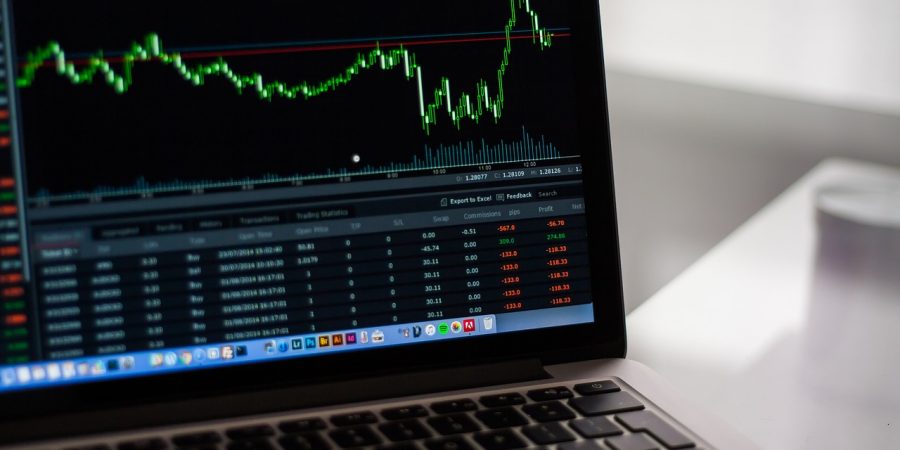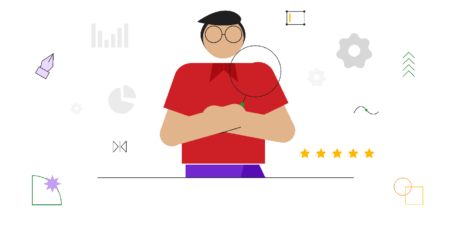After all these years of clever adverts and hearing your friends talk about diversifying their portfolios, you’ve cottoned on to the online trading trend and decided to see what it’s all about for yourself. The first thing you should do is to research both the benefits and the risks of trading online so you can begin with a more informed and educated mind. Once that’s out of the way, you can have a look at what’s out there, and it’s a lot. Some of the more commonly traded sectors include foreign currencies, shares, cryptocurrencies, stocks and commodities. The latter two are probably the easiest to comprehend, considering our familiarity with them in everyday life. Some of the top traded stocks include companies such as Apple, Amazon and Netflix, while you’ve probably already used several of the frequently traded commodities today, like oil, coffee and wheat.
While choosing between stocks and commodities isn’t exactly the “to be or not to be” of the financial world, they are quite different’ and each brings its own share of advantages and disadvantages. For the sake of brevity, we’ll focus this Vestle article on defining the differences between stocks and commodities with the hope of shedding some light on your potential decision. Remember though, just because we discuss these two instrument groups doesn’t mean we imply one is “better” than the other. It’s just a matter of different characteristics and trading preferences.
The Long and Short of stocks
The stock of a corporation is comprised of all the shares into which its ownership is divided. These shares are bought up by people and represent a fractional ownership of a company. Shares usually entitle the stockholder to that fraction of the company’s earnings, proceeds, liquidation of assets, etc. Stocks are bought and sold on stock exchanges, which is probably the part you already know.
Thanks to films like Wall Street and Wolf of Wall Street, the stock market’s reputation as a maker of wealth and glamour has turned the financial markets into something of a dream destination, a lavish room with oak panelled walls and dry martinis served with boats of rich beluga caviar. But if you take a closer look, you’ll see all that is just the smoke and mirrors of Hollywood. The stock market is a complex institution that requires a great deal of experience and comes with plenty of risk. Let’s take a look at the main pros and cons of stock trading so you can see what every potential trader is up against.
The pros of stocks trading
Owning stocks can allow a trader to take advantage of a growing economy. Corporate earnings tend to correlate with economic growth, and bigger paychecks warrant bigger consumer demand, which drives more money into companies, resulting in an overall boost in the business cycle. If the company you’re investing in grows, that could mean more money in your pocket. Another pro is that stocks are easy to buy and sell. With a growing number of brokers and trading methods out there, gaining access to the financial markets is relatively easy. The third pro is that investing in stocks is thought to be a way to stay ahead of inflation. Historically, stocks average an annualised return of 10%, as compared to the average annualised inflation rate of 3.2%. Be aware that none of these pros should be construed as advice or encouragement to trade stocks, rather a way to get a general overview of what’s involved.
The cons of stocks trading
The first con is that it’s risky. Poor company performance can send stock prices plummeting and selling can mean losing your initial investment. Another con is that it can be time consuming. You need to research the companies you’re thinking of investing in, which can mean anything from poring over past stock performance to following the news to always keeping a monitoring eye on the stock ticker. A third con is that the stock market is super competitive. For some traders, it’s a side hobby, but for professionals, it’s a full-time gig and there’s a reason there was a wolf of wall street and not a kitten.* So if you believe that stocks may be in your future, your best bet is to do as much research as you can on how the market works and be sure you’re ready.
The Ins and Outs of Commodities
One of the foremost reasons traders can find commodities particularly interesting is because they are an important part of everyday life, and when you’re more familiar with how the market works you can better understand the reasons behind a commodity’s impact on the economy, such as with rising or falling crude oil prices.
“Investment commodities fall into four categories:
• Metals: including gold, silver, platinum and copper
• Energy: including crude oil, heating oil, natural gas and gasoline
• Livestock and meat: including feeder cattle, live cattle, etc.
• Agricultural: wheat, rice, cocoa, coffee, soybeans, corn, sugar, etc.”
The pros of trading commodities
One of the main advantages of commodities trading is potential high growth opportunities. If there is a rapid increase in demand for a certain commodity, it usually results in a significant increase in price. There’s no way to guarantee this type of cause-effect movement, however, so think hard before you make any decisions. Another advantage is portfolio diversification, meaning your portfolio is comprised of a variety of industries that each react differently to changes in the market. A more diverse portfolio can be seen as a way to lower risks – basically not putting all your eggs in one basket. The third most common pro of commodity trading is hedging against inflation, since commodities usually tend to have a positive correlation with inflation, both sudden and gradual. Remember, these are simply reasons why people might choose commodities to trade, and certainly not advice.
The cons of trading commodities
The top con is the high volatility of the commodities market. In fact, commodities are considered among the most volatile securities. One study even found that commodities are almost doubly as volatile as stocks and four times as much as bonds. For some traders, such volatility spells extra risk. The other con is that there are numerous factors that can affect price, making changes very hard to predict. While the pro of growth opportunities may be seen as opportunity, you’re better off researching this historical performance of your chosen commodity to see if it’s really something you want to trade.**
The con that can also be a pro
What determines a pro and con can be relative depending on how you choose to trade a commodity. For example, one commonly listed con is high volatility, which can indeed lead to increased risk for a conventional trader. However, high volatility means not just risk, but also opportunities for traders.
Some people choose to trade the commodity market via complex financial instruments – CFDs, which involve both higher risk and bigger trading potential. Traders who invests in Contracts for Difference (CFDs) can short or long their position based on the commodity’s price in both directions, both up and down. For example, let’s look at WTI Oil, one of the top traded commodity CFDs on the Vestle platform. Based on WTI’s market performance, 2019 can be seen as a particularly volatile year. Between the end of 2018 and April 2019, WTI Oil rose +56% but then fell -19% between April and mid-June.
The bottom line
Before you get to the point where you need to choose between trading stocks and commodities, do your research on both, as well as other financial instruments. Maybe you’ll decide you don’t have to choose and you’ll end up picking some of both for a more diversified portfolio. Either way, this Vestle article is just a jumping off point to introduce you to both and shouldn’t be taken as advice in any way. At Vestle, you can use our platform to monitor the market performance of hundreds of different instruments including both stocks and commodities, which can be traded in the form of Contracts for Difference (CFDs). With CFDs, you trade on your chosen instrument’s price movement both up and down, without actually owning the underlying asset. Since all trading comes with risk, it’s a good idea to acquaint yourself with the basics, and we offer a variety of educational materials plus video tutorials to get the job done.
The materials contained on this document have been created in cooperation with Vestle and should not in any way be construed, either explicitly or implicitly, directly or indirectly, as investment advice, recommendation or suggestion of an investment strategy with respect to a financial instrument, in any manner whatsoever. CFDs are complex instruments and come with a high risk of losing money rapidly due to leverage. 86.9% of retail investor accounts lose money when trading CFDs with Vestle. You should consider whether you understand how CFDs work and whether you can afford to take the high risk of losing your money. Any indication of past performance or simulated past performance included in this document is not a reliable indicator of future results. Full disclaimer: https://www.vestle.com/legal/analysis-disclaimer.html









